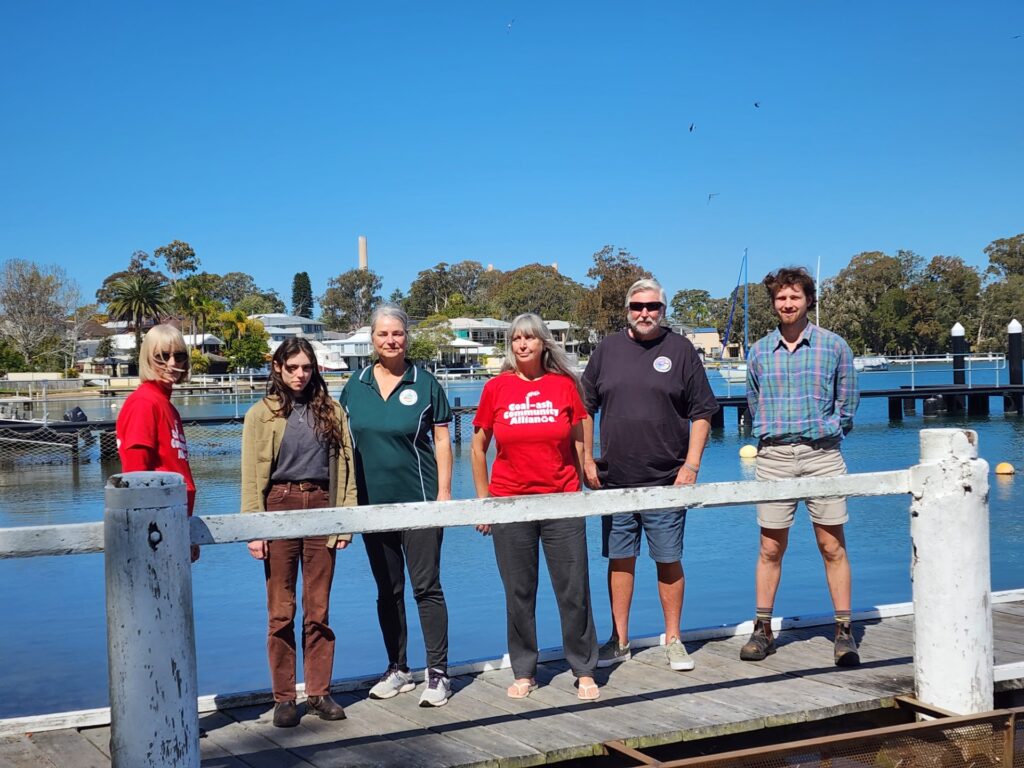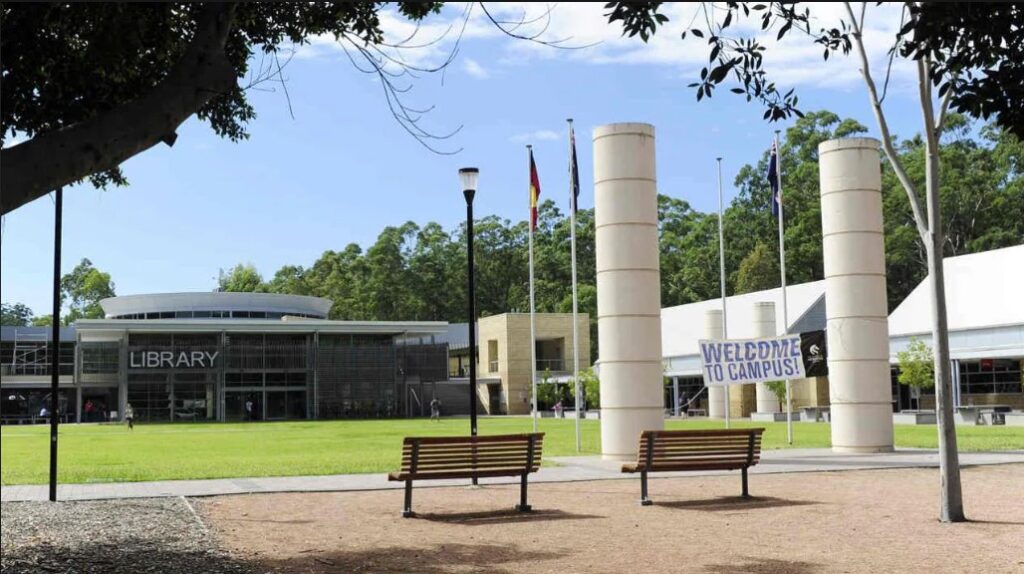One year after Lake Macquarie residents started ringing alarm bells over the cause of three fish kills within about 12 weeks, the NSW Environment Protection Authority (EPA) has commenced a prosecution against Sunset Power International Pty Ltd trading as Delta Electricity.

By Jacquelene Pearson
Delta will be pursued in the Land and Environment Court in relation to a fish kill occurring near the Vales Point Power Station at Lake Macquarie in September 2022.
The EPA alleges that Delta failed to maintain their chlorine dosing plant in a proper and efficient condition, resulting in a faulty valve that caused a discharge of concentrated sodium hypochlorite into waters leading to Wyee Bay.
NSW EPA Chief Executive, Tony Chappel, said the prosecution follows a comprehensive investigation using all available resources.
“Alongside the community, we expect Delta to meet high standards given the proximity of the Vales Point Power Station to Lake Macquarie,” Mr Chappel said.
“Our investigation found that Delta could have prevented the fish kill if they had adequate equipment and processes in place.
“We’re pleased that Delta have upgraded their systems and the water quality in the Lake has returned to normal levels.
“We will continue to ensure Delta acts in accordance with its environmental responsibilities to prevent future events and protect the environment in Lake Macquarie.
“We know this was a distressing event for the community and I want to thank them for their patience as we worked through the investigation.”
The EPA alleges the incident is a breach of Delta’s environment protection license and an offence against section 64 of the Protection of the Environment Operations Act 1997 (POEO Act) which carries penalties of up to $1 million.
Following the 2022 fish kill events, the EPA arranged for DPE Science, Economics and Insights to install a Smart Buoy data logger to monitor water quality in Lake Macquarie at Wyee Bay.
Live data is available on the EPA website here: https://www.epa.nsw.gov.au/working-together/community-engagement/updates-on-issues/mannering-park-lake-macquarie-fish-kills
The EPA also stated it had issued Delta with a license variation last year “to maintain significantly tightened emission standards for nitrogen oxides (NOx) from Vales Point”.
Delta is also required to undertake a range of activities to protect the local environment including to implement a seagrass monitoring program and a Coal Ash Repository water sampling plan.
Representatives of the Coal Ash Community Alliance are thankful the EPA has finally done its due diligence and started legal action against Delta.
However, they are not convinced the EPA has the teeth to protect Lake Macquarie and its residents from future failures at Vales Point and Eraring power stations, particularly as the NSW Government makes moves to extend their operating lives.
A spokesperson for the Community Coal Ash Alliance said there were actually three fish kills last year but it appears the EPA has only taken legal action in relation to one event which locals believe was, in fact, the second fish kill.
“The first big fish kill was the actual second fish kill because there was an earlier smaller one about six weeks earlier than the big one and everybody local at that time knew something fishy was up,” the spokesperson told The Point.
“Then the big first one happened. Then the second one happened. By that time everybody was convinced that it was the power station.
“Locals at the time were saying it was the chlorine that they [Delta] were using to clean everything. They have to flush the pipes regularly. It is a maintenance thing. Most residents thought it was something to do with when they were flushing the pipes and chlorine and perhaps human error.
“When it happens three times in a row you say ‘hang on this is something more than human error’ and that is why it was insisted that the EPA be involved.
“Locals pointed out the chlorine to the EPA and said check this out because it dissipates and you are not going to find it in any of these dead animals or dead marine life you will find all along the shore but it killed everything.
“Residents spotted employees from the power station out before dawn picking up dead fish in a tinny in the outlet.
“They have a hot water outlet that comes through the power station and the outlet is in Wyee Bay and they saw them around the outlet picking up the dead fish.
“It is good that they are doing something about it but I think that the EPA needs to be given more teeth and the fines need to be bigger because it is not like this is the first time that there have been any breaches of their licenses.
“The situation has become worse since the power stations were sold off to private enterprise and the focus has been on profit making and maintenance has gone by the wayside.
“They’ve done their due diligence, I kind of commend them for what they have done because they have taken their time. They have obviously listened.
“From what I understand they have even sent samples over to America to get another laboratory over there to check it out. And so they have come back but for them to reach the point where they are going to initiate prosecution against them, that is a big step for the EPA to go to that point because I think normally they back off from getting that serious about it.
“The fines aren’t large enough to deter the power stations from committing these errors.
“You have to something really dramatic to get a decent fine. The average fine that the EPA hands out is about $15,000. What’s $15,000 if that’s the case?
“I think the maximum penalty should be applied in this case but will it make any difference whether it is $15,000 or $1 million, it is still not fixing the problem and knowing that Eraring is most probably going to extend its life, so it may happen there. You don’t know. Because it was probably human error.
“Vales Point will probably also apply for an extension of time and these issues are just going to keep flowing and flowing and flowing.
“If you go opposite the outlet on the other side there is one sign only about 500 x 500 that says don’t eat all the fish here because they are toxic and who should be the contact, it is in four different languages, the contact is Delta or the Hunter New England Health Unit.
“Now the government has known about it. For the Hunter New England Health Unit to put their name on that sign, we sent someone around the whole of Lake Macquarie which is a big lake to find other public warning signs at boat ramps and there isn’t any.
Vales point failed in their maintenance. They were not maintaining their equipment. To the standard they should and that is what they have been ordered to do.”
The community representatives want the EPA to put more information in the public domain about additional measures mentioned in their media release including reference to a coal ash repository investigation and tightening of Vales Point’s NoX emissions which it has received a series of exemptions by the EPA to exceed.
Johanna Lynch from the Hunter Community Environment Centre said the prosecution was for Delta’s failure to maintain their equipment. She did not understand why they were not also being prosecuted for water pollution.
“We do have a meeting with the EPA next week and we will ask that,” Ms Lynch said.
Residents of Mannering Park and citizen scientists with HCEC who witnessed hundreds of dead mullet, bream, bat fish, whiting and multiple juvenile white-spotted eagle rays in Wyee Bay on two separate occasions in August and September of 2022 immediately pointed to the Vales Point power station’s cooling-water outlet as a suspected source of contamination leading to the deaths.
Sodium hypochlorite is a chemical compound containing chlorine.
“We congratulate the NSW EPA on the completion of its investigation and welcome wholeheartedly the news Delta Electricity will have to face up to its negligence in court over this entirely avoidable incident,” she said.
“As well as clarity over the cause of the fish kill, the NSW EPA’s findings validate long-running concerns held by many residents of southern Lake Macquarie, that Sunset Power International does not take its responsibilities to the community or the environment seriously.
“Community members who saw for themselves the severity of this unacceptable oversight can be assured that Delta Electricity will be subject to the legal scrutiny they have earned through complacency and a failure to maintain equipment which led to the regrettable and entirely preventable loss of marine life in the estuary that is the lifeblood of the community.”
Mrs Julie Hopley, Mannering Park resident and first responder to the fish kill said, “I’m very concerned about our Lake’s health. Someone needs to be made accountable for the damage and deterioration that we’ve witnessed over the decades and we must take steps to get back the beauty and health of these natural resources so they continue on for our children and grandchildren to enjoy.”
In August and September of 2022, multiple fish kills occurred in Wyee Bay sparking the criminal investigation of Delta Electricity by the NSW Environmental Protection Authority which concluded with the announcement of prosecution.
Footage of the first event showing Delta Electricity staff scooping dead fish and other marine life into a boat and loading the back of a company ute with the carcasses was captured by a local resident.
The first investigation concluded the event was due to natural factors, with results suggesting that due “…the combination of the temperature and sulfide stress likely overwhelmed fish, acclimatized to higher temperatures”2 and a Smart Buoy was deployed in the bay to continuously monitor conditions.
In May 2023, HCEC released a detailed report on the impacts of Vales Point power station and associated mines operated by Delta Coal, publishing documents obtained under GIPA which revealed that Delta Electricity is licensed to add 1200kg of chlorine to the cooling water system daily.
Chlorine concentrations at the cooling water outlet are generally below 0.2 mg/L, they are regularly found between 0.1 and 0.2ug/L, well above the concentration found to adversely affect fish larvae.
Since the privatisation of Vales Point in 2014/15, 11 Environmental Protection Licence (EPL) breaches have occurred for water pollution and coal ash dust, seagrass in Wyee Bay has all but disappeared due to excessive thermal pollution and metal contamination of off-site groundwater has been identified.


